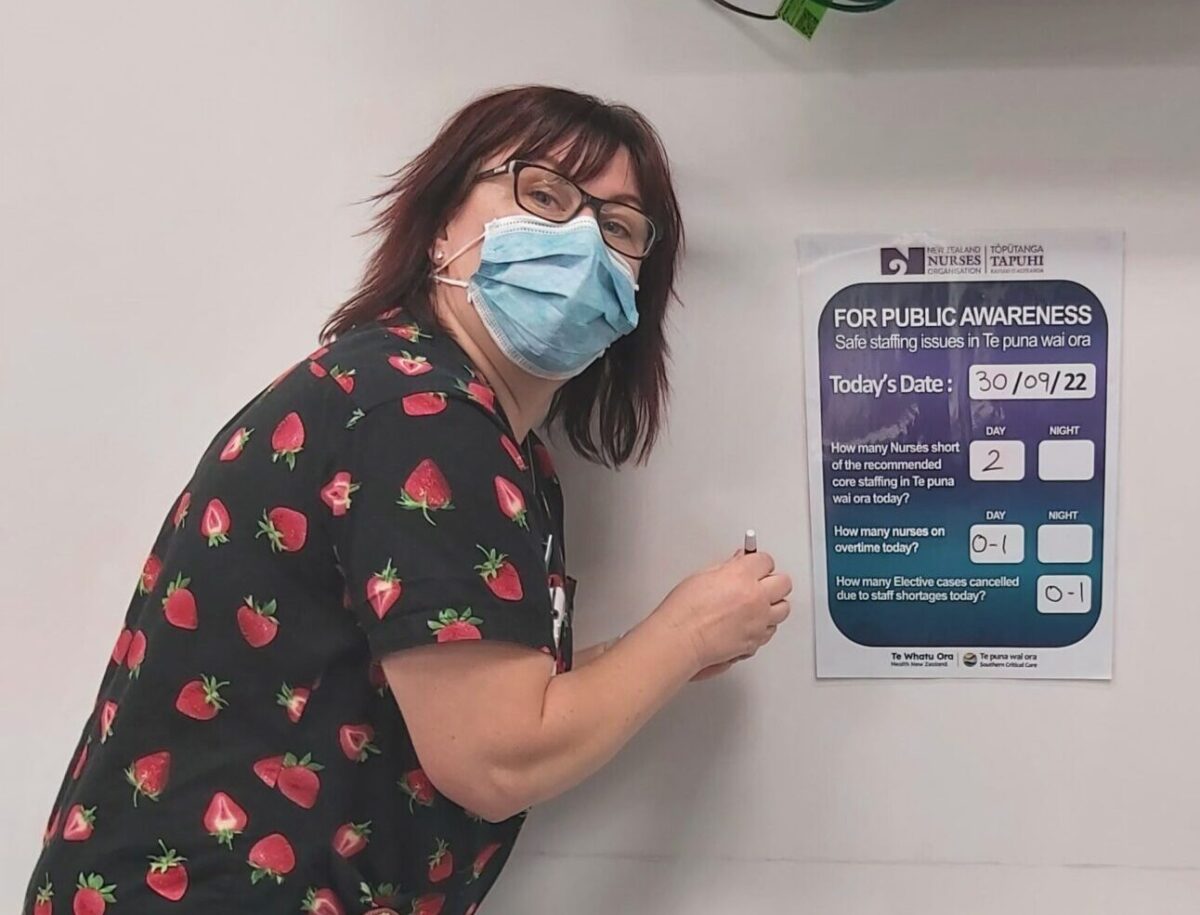“I kept reading about the plight going on over the country on our NZNO social media pages and after the articulate way [Whangārei delegate] Rachel Thorn described their staff shortages in Whangārei ED I decided to draw a line in the sand.”
So in early September, Robinson designed an A3 laminated poster to hang in the hospital’s whānau intensive care unit (ICU) reception, and show exactly how short of staff the unit was each day — and the conseqences.
“By 11am everyday in ICU, we know how many elective cases for our unit will be cancelled due to shortages of staff (nurses and/or doctors).”
“I see the tiredness and the staff so much want to help their colleagues and ultimately the patients — but after this continuous pressure, goodwill is running out.”
In ICU, the staff-patient ratio should be 1:1. For more than a year, Robinson said staff had faced a “daily barrage of texts imploring any staff. . . who can come and fill in roster gaps as our acuity and numbers have increased”.
As a delegate, she said: “I see the tiredness and the staff so much want to help their colleagues and ultimately the patients — but after this continuous pressure, goodwill is running out.”
Robinson said initially the hospital’s human resources (HR) department was “perturbed” and called a meeting. However, NZNO organiser Celeste Crawford affirmed members were entitled to put their signs up.
“It’s in the [NZNO-Te Whatu Ora collective] agreement and we’re entitled to do it.”
“It’s okay for them to hang their signs because family and friends of patients need to know that there aren’t enough staff in workplaces to be able to cover the workload that our members are doing,” Crawford said.
As well as highlighting “chronic understaffing”, Crawford said the signs also alerted patients that their Health & Disability Consumers’ Right four was being breached: “Every consumer has the right to have services provided with reasonable care and skill.”
“So because our members are working short-staffed, the consumer may not be getting that care and skill.”
Robinson said the Healthy Workplace Agreement Appendices 1(b) in the NZNO-DHB (now Te Whatu Ora) collective agreement allowed members to display staffing shortages to the public.
“The patients have the right to know there will be reasonable services that they expect that they’re not necessarily going to get.”





